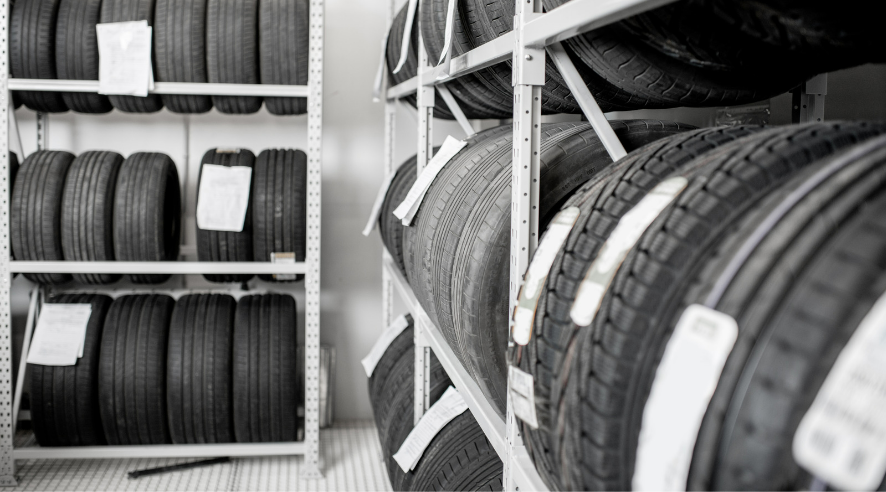Unleashing the Secrets of Car Tires: A Comprehensive Guide to Maximizing Your Vehicle's Performance
- 11 February 2023

As car owners, we often overlook the importance of our car tires in ensuring optimal vehicle performance. In reality, car tires play a crucial role in maintaining a smooth and safe driving experience. In this article, we will delve into the world of car tires and uncover the secrets to maximizing their potential.
Types
The first step in understanding the importance of car tires is knowing the different types available in the market. There are four main types of car tires: summer, winter, all-season, and performance tires. Summer tires are designed for use in dry conditions and provide exceptional grip, handling, and responsiveness. Winter tires, on the other hand, are meant for use in cold, snowy, and icy conditions, and have unique treads and rubber compounds that maintain traction even in the harshest winter weather. All-season tires, as the name suggests, are designed to be used year-round and provide good traction in both wet and dry conditions. Finally, performance tires are intended for high-speed driving and offer excellent handling and braking capabilities.
Conditions
Once you have identified the type of tire that best suits your driving conditions, the next step is to determine the correct tire size for your vehicle. Using the wrong tire size can negatively affect your car's handling and fuel efficiency. To find the correct tire size, consult your car's owner manual or check the tire information placard, typically located on the driver's side doorjamb.
Tire Pressure
In addition to tire type and size, it is crucial to maintain proper tire pressure. Underinflated or overinflated tires can lead to uneven wear, reduced fuel efficiency, and even accidents. It is recommended to check tire pressure at least once a month using a tire pressure gauge. The recommended tire pressure can be found on the tire information placard or in the owner's manual.
Rotation
Another factor to consider when it comes to maximizing tire performance is tire rotation. Rotating your car tires every 6,000 to 8,000 miles ensures even wear, prolongs tire life, and improves handling. This is because each tire experiences different stresses depending on its position on the car. For example, front tires bear more weight and are subject to more steering and braking forces than rear tires.
Maintenance
Finally, we come to tire maintenance. Regular inspections of your car tires can reveal early signs of wear, such as cracks, bulges, or punctures. These issues can be easily fixed if caught early, preventing potential blowouts or flat tires on the road. It is also essential to replace tires before they reach the end of their useful life. Most tires have a treadwear indicator, a small rubber bar that becomes visible when the tire is worn down to the legal limit of 2/32 of an inch.
Factors affecting tire performance:
Aside from the main factors mentioned earlier, there are other key factors that can impact the performance and lifespan of your car tires. One such factor is wheel alignment. Proper wheel alignment ensures that your tires are making contact with the road surface at the correct angle, reducing uneven wear and tear. Misaligned wheels can cause tires to wear unevenly, leading to premature tire failure and increased fuel consumption.
Driving habits also play a significant role in tire performance. Abrupt acceleration, sudden braking, and excessive speeding can cause tires to wear down quickly, reducing their lifespan. Additionally, rough roads and potholes can cause damage to tires, leading to punctures, bulges, and even blowouts.
The environment in which you drive can also affect tire performance. High temperatures can cause the rubber to break down faster, reducing tire lifespan. Driving on rough or unpaved roads can cause rocks and debris to damage the tires, leading to punctures and other issues.
Lastly, the quality of the tire itself can significantly impact its performance and lifespan. Investing in high-quality, well-constructed tires with proper tread design and rubber compound can provide better handling, traction, and fuel efficiency, as well as longer wear life.
In conclusion, car tires are a vital component of vehicle performance that should not be taken for granted. Identifying the appropriate tire type and size, maintaining proper tire pressure, rotating tires, and conducting regular inspections and maintenance are essential steps in ensuring optimal tire performance. By following these tips, you can unleash the full potential of your car tires and enjoy a safe and smooth driving experience.




